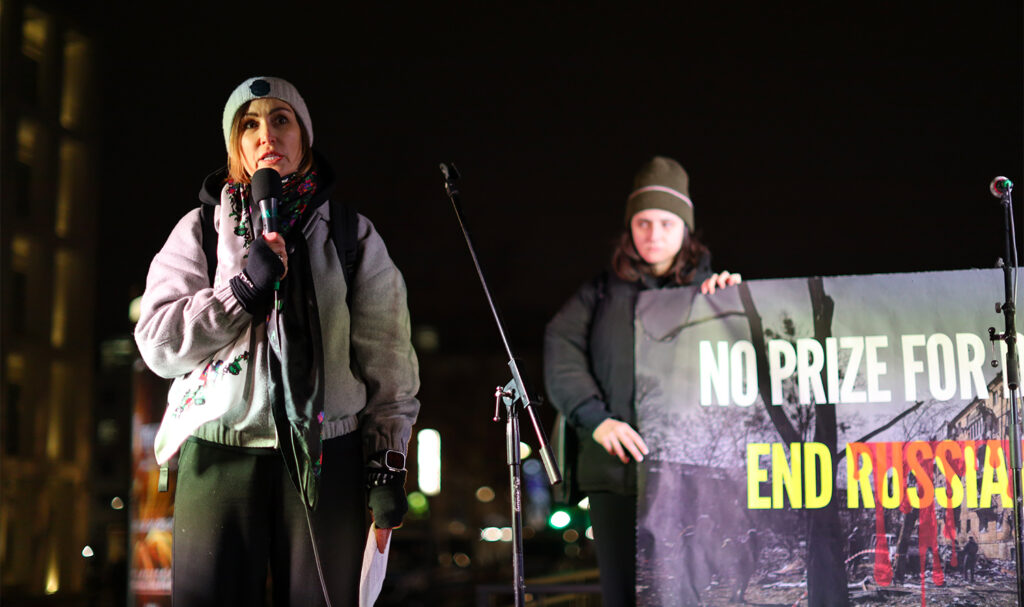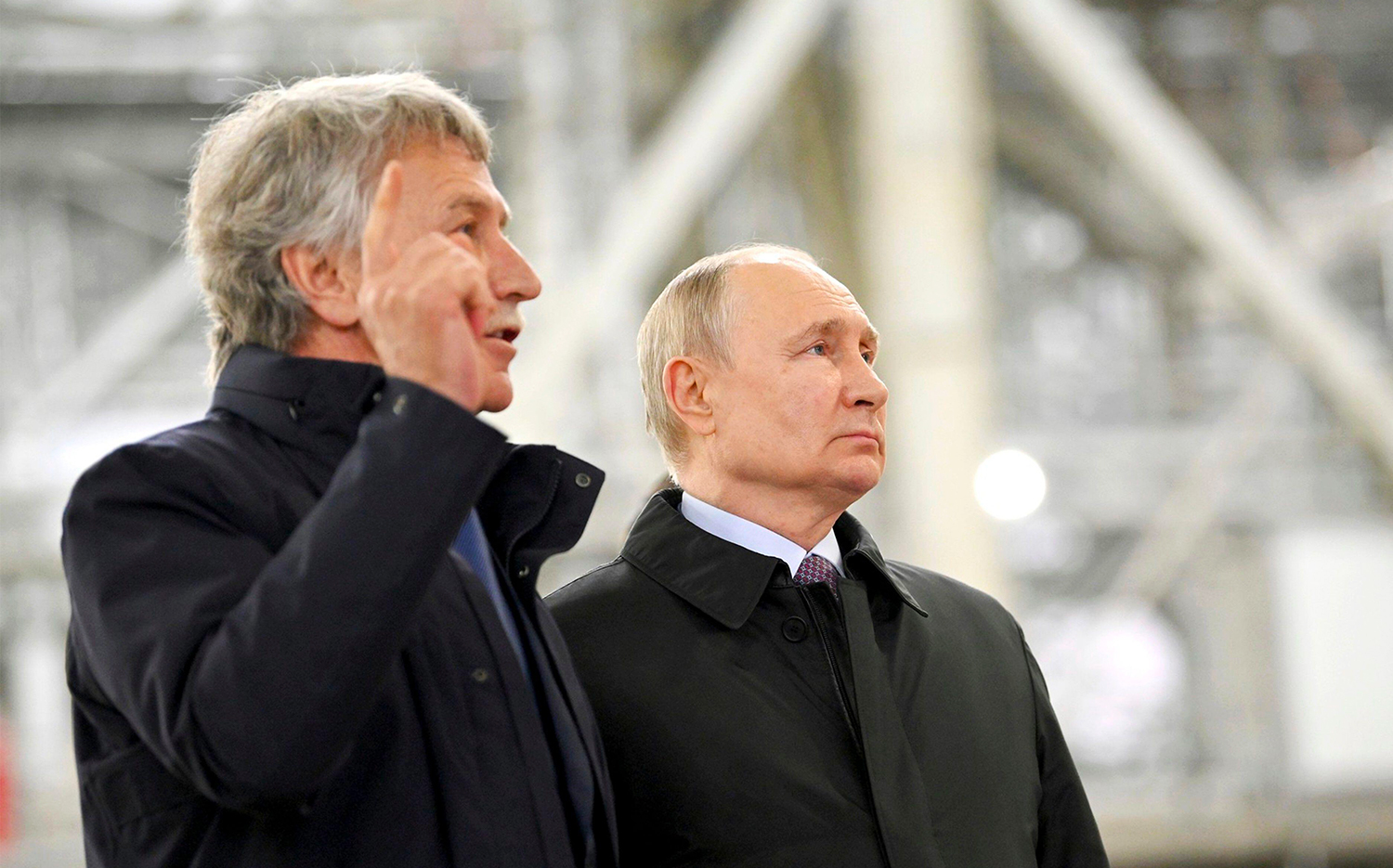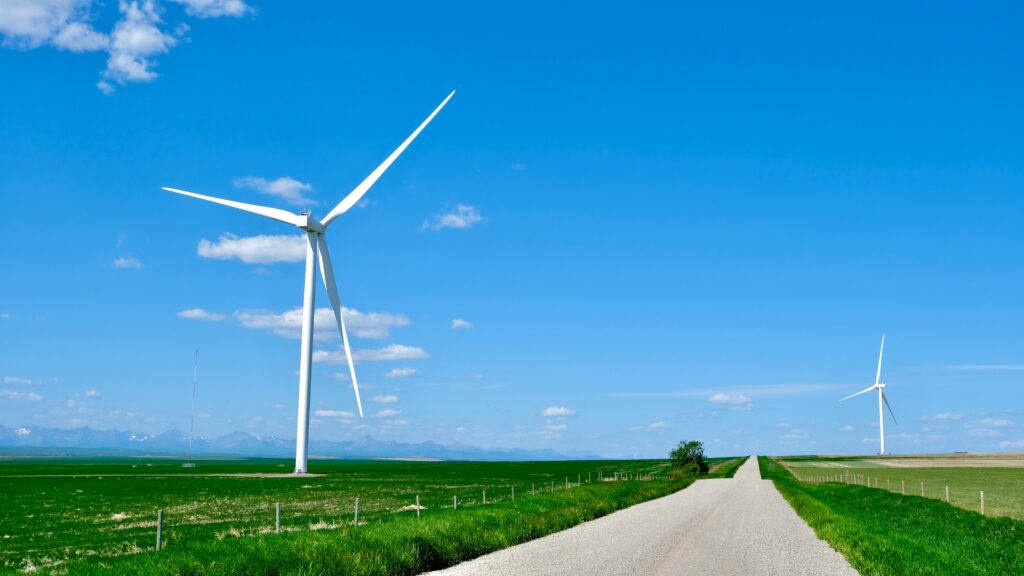BERLIN – At a five-star hotel next to the Brandenburg Gate in Berlin, the world’s largest liquified natural gas (LNG) companies met this week for the 24th edition of the World LNG Summit and Awards.
As the participants heralded their position at the forefront of a global LNG boom, one gas giant’s presence at the conference went largely undetected – Novatek, Russia’s second largest gas company. According to a list of invited companies obtained by DeSmog, Novatek attended the summit under its Singapore-based subsidiary, Novatek Gas & Power Asia.
Following Russia’s full-scale invasion of Ukraine in February 2022, Novatek emerged as an alternative gas supplier to the country’s state-owned fossil fuel giant Gazprom. Novatek’s LNG business grew out of major partnerships with France’s TotalEnergies and Chinese backers, with its first gas shipments from Yamal LNG in Siberia to Europe in 2017.
Novatek’s chief executive Leonid Mikhelson reportedly has close ties to the Kremlin, which announced this April that it will help to finance the company’s LNG expansion plans in the Arctic.
“It is deeply disappointing and really disturbing that Novatek, in the third year of the full-scale invasion, is even allowed at this event,” said Svitlana Romanko, director of Razom We Stand, a Ukrainian environmental organisation that advocates for the end of Russian fossil fuel exports to Europe. “Why do German and EU officials allow Novatek to lobby here?”
As the Wednesday session closed out in Berlin with a networking drinks reception, the tanker ship Vladimir Voronin was docked in the Belgian port of Zeebrugge unloading a cargo of gas from Siberia. It would become the latest in hundreds of such LNG shipments to European ports from Novatek’s majority-owned Yamal LNG facility this year.
The Centre for Research on Energy and Clean Air – a Helsinki based think tank – estimates that despite rounds of sanctions, Europe has imported €211 billion worth of Russian fossil fuels since February 2022. About €97 billion came from gas imports.
Novatek’s LNG has remained a backdoor for Russian gas into Europe, with the seaborne gas trade yet to be subject to EU sanctions. Russian LNG is having a record year in Europe, with about 19 billion cubic metres of gas imported through November – 18 percent more than the same time last year – according to data from Brussels-based think tank Bruegel. And, while Germany does not import Russian LNG directly, it can still arrive indirectly through pipelines from neighbouring countries.
SEFE – the German state-owned gas company formerly known as Gazprom Germania – continues to hold an LNG supply contract with Yamal Trade Pte. Ltd, another Singapore-based company which is majority-owned by Novatek. The chief executive of SEFE, Egbert Laege, gave an address to the LNG conference on Tuesday.
“As Europe has not sanctioned LNG supply from Russian sources, there are currently no legal grounds for terminating (or suspending) the supply contract,” said Jan-Peter Haack, a spokesperson for SEFE.
Earlier in the day, the LNG summit’s keynote address was given by Stefan Wenzel, the German government’s parliamentary state secretary for economic affairs and climate action and a member of Germany’s Green Party.
“In his brief speech, Parliamentary State Secretary Wenzel emphasised how important diversification away from Russian gas was and is in terms of supply,” said a spokesperson for the German Federal Ministry for Economic Affairs and Climate Action, adding that the ministry had no contact with Novatek. DeSmog did not gain access to the event.
Wenzel also participated in a roundtable discussion on Monday night at the “Counter-Gas Summit” hosted by climate campaigners in Berlin, where he faced questions about the fuel’s high carbon footprint, infrastructure costs, and potential links to international human rights violations.
Subscribe to our newsletter
Stay up to date with DeSmog news and alerts
“The German government must do everything it can to ensure that this contract is annulled,” said Constantin Zerger, head of energy and climate protection for Hanover-based non-profit Environmental Action Germany, who called for a full EU embargo on Russian LNG which he says is financing the country’s war chest.
“The fact that Novatek can now market its business models and establish contacts here in Berlin – in the presence of representatives of the Federal Ministry for Economic Affairs and Climate Protection – is a political scandal,” he added.
An EU ban on trans-shipment of Russian LNG in member state ports – in which the gas is offloaded onto larger tanker ships and sent to global destinations – is set to take effect in March 2025. The sanctions would not apply to imports of Russian LNG that remain in the EU, however, which make up over three-quarters of European LNG imports from Russia.
The EU plans to phase out Russian gas imports completely by 2027, and the bloc’s new energy chief Dan Jørgensen yesterday said it is his “main priority” to sever all EU energy links with Russia.
Neither Novatek nor the organisers of the World LNG Summit and Awards responded to DeSmog’s request to confirm or comment on Novatek’s attendance at the conference.
Global Boom
The World LNG Summit and Awards schedule of events showed an industry flush with profits and looking to expand. Conference sessions included “Cementing LNG’s credentials as a fuel for the net zero scenario” and “The role of LNG in meeting Europe’s industrial energy demand.”
The event’s lead sponsors – designated as “Platinum Level” – were Cheniere Energy and Venture Global, two United States LNG exporters that have increasingly flooded the European gas market since February 2022. The conference’s awards evening was also hosted by Cheniere Energy, which is the largest U.S. LNG exporter.
At a strategic session hosted on Wednesday, representatives from U.S. and Canadian LNG companies addressed topics including “regulatory bottlenecks” and “challenges from new low-carbon energy sources.”
Europe began importing LNG from the United States in 2016. The Trump administration pressured EU leaders to import more U.S. LNG in 2018 by threatening tariffs on European industrial goods, which resulted in an over 2,000 percent yearly increase in these imports by February 2022.
The Biden administration also facilitated the expansion of LNG exports in March 2022, when the U.S. Embassy in Berlin hosted the “Berlin Energy Transition Dialogue,” in order to match U.S. LNG suppliers with German buyers, following Russia’s full-scale invasion of Ukraine.
The U.S. became the world’s leading LNG exporter in 2023, backed by import contracts with Europe-based multinational oil and gas companies including BP, Shell, and TotalEnergies, assisted by finance from European banks.
The vast majority of U.S. LNG comes from fracking fields in Texas and Louisiana, where research has shown high leakage rates of the climate-heating gas.
“Cheniere and Venture Global have the money to sponsor global summits but not invest in the communities they harm. They rake in millions in exemptions while poisoning our air, wrecking ecosystems, and fueling the climate crisis,” said James Hiatt, head of For a Better Bayou, a grassroots environmental organisation based in Louisiana, who joined the Counter-Gas Summit in Berlin.
All of the world’s top LNG exporting nations – the United States, Australia, Qatar, and Russia – plan to open new gas export terminals by 2030. Countries including Canada, Mexico, Argentina, and Senegal are also expected to add to the export expansion, with LNG demand predicted to grow particularly in emerging Asian markets.
Last week, a report from French non-profit Reclaim Finance showed that banks provided $213 billion in support for new LNG export and import projects worldwide between 2021 and 2023, with up to a combined 156 LNG terminals planned by 2030.
“Oil and gas companies are betting their future on LNG projects, but every single one of their planned projects puts the future of the Paris Agreement in danger,” said Justine Duclos-Gonda, a campaigner for Reclaim Finance in a press statement which accompanied the report’s publication. “Banks and investors claim to be supporting oil and gas companies in the transition, but instead are investing billions of dollars in future climate bombs.”
On Tuesday night, hundreds of demonstrators gathered near the Pariser Platz in the heart of Berlin to protest the LNG conference, following civil disobedience actions from climate groups outside the summit venue that morning.
Signs and banners showed their diverse reasons for opposing the global LNG industry: climate-heating emissions, links to fracking, human rights violations, and the destruction of biodiversity.

The German capital has become a key stop for LNG companies eager to gain a foothold in Europe’s gas market. Until 2022, Germany imported about 55 percent of its natural gas from pipelines supplied by Gazprom, an economic relationship which started in the middle of the Cold War and lasted for half a century.
In May 2022, in a bid to sever Germany’s gas link with Russia, the Bundestag passed an “LNG Fast-Track Law” to support the build-out of the country’s first LNG import terminals through €10 billion in subsidies – allowing the country to buy LNG from across the globe. European neighbours including France, the Netherlands, and Poland have also expanded, or plan to expand, their LNG import infrastructure, with Germany leading the way in public investments.
“German and European dependence on fossil fuels is not only harmful in terms of climate policy, but also geopolitically,” said Zerger of Environmental Action Germany. “Instead of building massive LNG overcapacity, the government should work to reduce gas dependence.”
Manning Rollerson, a resident of Freeport, Texas, which has one the largest U.S. LNG export terminals, addressed the crowd at the anti-LNG rally in Berlin on Tuesday night. The LNG industry’s promises of clean gas and economic opportunity were “lies”, leaving his community with pollution and poverty instead, he said. “At the end of the day, the people are the ones suffering.”
Subscribe to our newsletter
Stay up to date with DeSmog news and alerts







